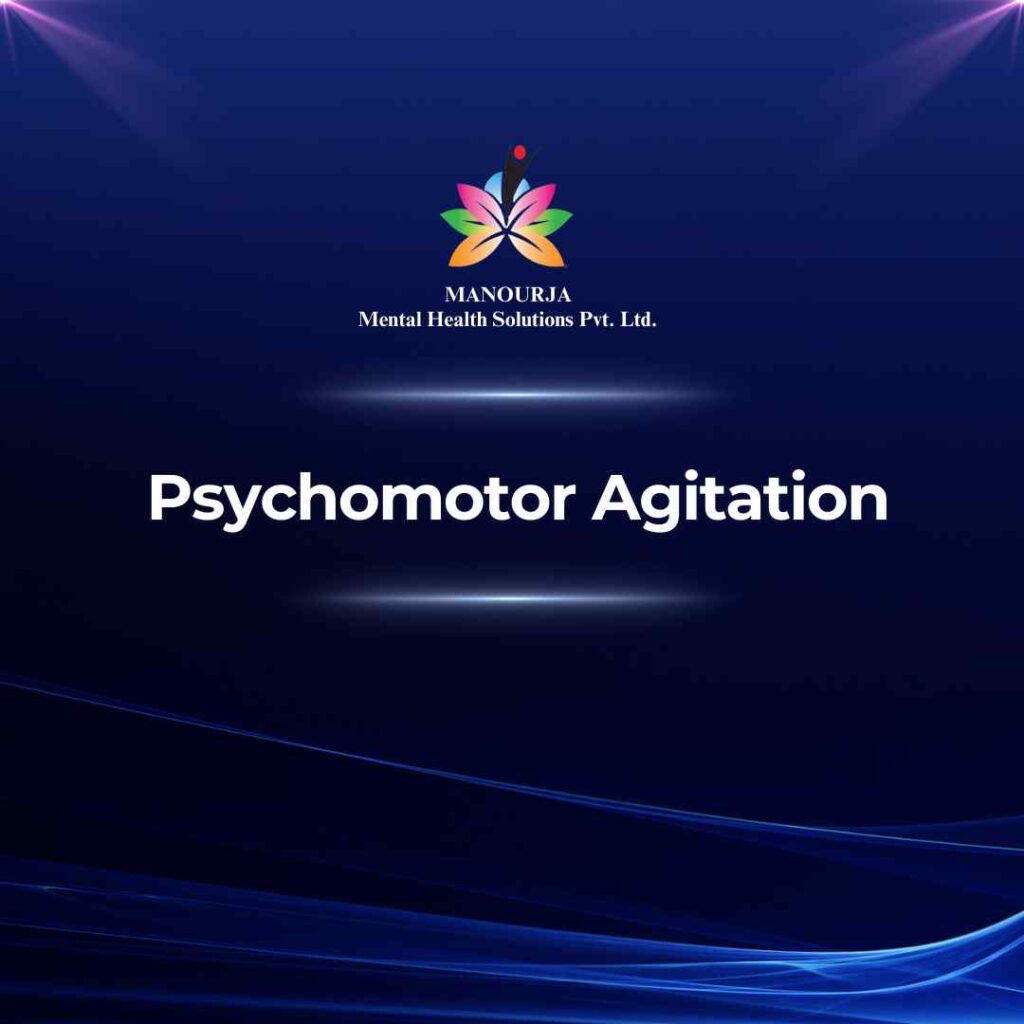Psychomotor Agitation

“Psychomotor agitation” refers to a state of excessive physical and mental activity that is often characterized by restlessness, increased movement, and an inability to sit still or relax. Individuals experiencing psychomotor agitation may exhibit pacing, fidgeting, hand wringing, tapping, or constantly changing positions. This condition can also include rapid speech, impulsiveness, and heightened emotional responses.
Psychomotor Agitation as a Sign and Symptom of Mental Illness
Psychomotor agitation is commonly associated with several mental health disorders, particularly mood disorders and psychotic disorders. It reflects an increase in psychomotor activity that can be distressing and disruptive to daily functioning.
Mental Illnesses with Psychomotor Agitation as Symptoms
Psychomotor agitation can occur in the following mental health disorders:
- Major Depressive Disorder (MDD): During severe depressive episodes, some individuals may experience psychomotor agitation alongside other symptoms such as sadness, fatigue, and insomnia. This agitation can manifest as pacing, restlessness, or difficulty concentrating.
- Bipolar Disorder: In manic or hypomanic episodes of bipolar disorder, psychomotor agitation is a common feature. It is characterized by heightened energy levels, increased talkativeness, racing thoughts, and impulsivity. This state of agitation can lead to risky behaviors and impaired judgment.
- Generalized Anxiety Disorder (GAD): Individuals with GAD may experience psychomotor agitation during periods of intense anxiety or panic. This can include restlessness, trembling, muscle tension, and difficulty relaxing or focusing on tasks.
- Acute Stress Disorder and Post-Traumatic Stress Disorder (PTSD): Psychomotor agitation can occur in response to traumatic events or stressors. It may manifest as hypervigilance, exaggerated startle responses, and an inability to sit still or relax due to heightened arousal.
- Schizophrenia: Psychomotor agitation can occur during acute psychotic episodes in schizophrenia. This may involve purposeless movements, restlessness, pacing, or agitated behaviors without a clear purpose.
Managing and Treating Psychomotor Agitation
Treatment for psychomotor agitation focuses on addressing the underlying mental health condition and managing symptoms effectively:
- Medication: Depending on the underlying disorder, medications such as mood stabilizers, antipsychotics, anxiolytics, or antidepressants may be prescribed to reduce agitation and stabilize mood.
- Therapy: Cognitive-behavioral therapy (CBT), mindfulness-based approaches, or other forms of psychotherapy can help individuals learn coping strategies, manage stressors, and reduce symptoms of agitation.
- Behavioral Interventions: Creating a calm and structured environment, promoting relaxation techniques (e.g., deep breathing exercises), and engaging in physical activities can help reduce psychomotor agitation.
- Supportive Care: Providing reassurance, understanding, and support from family members, caregivers, and mental health professionals can help individuals manage symptoms and improve overall well-being.
Early recognition and intervention for psychomotor agitation are essential for preventing escalation of symptoms and improving outcomes. By addressing the underlying mental health condition and implementing appropriate management strategies, individuals can experience relief from agitation and achieve better overall quality of life.
At MANOURJA, we believe in the transformative power of counseling. Our experienced therapists offer a safe and supportive space where you can explore your thoughts, emotions, and challenges. Through personalized counselling sessions, we’ll work together to develop coping strategies, build resilience, and achieve lasting positive change. Discover the path to a healthier, happier you with MANOURJA counselling services.
MANOURJA Rehabilitation Services
At MANOURJA, we’re dedicated to helping you in rebuild your life, after difficult times. Our rehabilitation services focus on understanding what you need to move forward, whether you’re recovering from addiction, trauma, or any psychological – social challenges. We create personalized plans, that are all about helping you, regain your strength and find hope again. With a caring team by your side, you’ll have the support to make real progress and take steps toward a brighter, healthier future.
